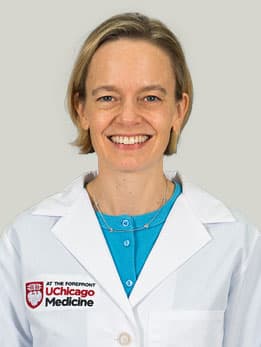Many U.S. women don't realize they're seeking reproductive care at Catholic hospitals

More than one-third of women who go to a Catholic hospital for reproductive care aren’t aware they’re seeking obstetrical and gynecological care at a facility that may have limited health care options due to its religious affiliation.
In a new paper published in May 2018 in the journal Contraception, a team of researchers from the University of Chicago Medicine and the University of California San Francisco report 15.6 percent of reproductive age women in the U.S. said they would receive care at a Catholic hospital when asked where they would go if they needed OB/GYN or reproductive care at a hospital.
Among women whose primary OG/GYN hospital was Catholic, 63 percent of women correctly identified their hospital’s specific religious affiliation. The remaining women did not know their hospital was a Catholic facility. Of that group, two-thirds of women who misidentified their Catholic hospital’s affiliation said their hospital was secular (66 percent). Nearly half (48 percent) felt sure or very sure of their incorrect response.
“Patients need accurate information in order to make decisions about where to seek reproductive care,” said Debra Stulberg, MD, an associate professor at the University of Chicago Medicine who was the study’s senior author. “Catholic hospitals restrict many common aspects of reproductive care, so women may face delays or outright denial if they need services like contraception or abortion and don’t realize their hospital is Catholic.”
By comparison 93 percent of women who received reproductive care at non-Catholic hospitals correctly identified that those facilities were not affiliated with the Roman Catholic church.
Nearly 15 percent of acute care hospitals in the U.S. are Catholic owned or affiliated hospitals, according to 2016 data. That works out to one out of every six hospital beds in the country. In some states, the rate is significantly higher.
Patients need accurate information in order to make decisions about where to seek reproductive care.
Stulberg, who devotes much of her research to women’s health and Catholic systems, said it’s important for people to know if their hospital has a religious affiliation because it may mean they will encounter limitations on medical care. Catholic hospitals are required to follow guidelines created by the U.S. Conference for Catholic Bishops. These place limits on abortion, contraception and certain infertility treatments that run counter to the church’s moral teachings.
“It is clear that greater efforts are needed to make sure women have this information they value,” said Lori Freedman, PhD, a medical sociologist at UCSF who was one of the paper’s co-authors. “The public deserves greater hospital transparency than we currently have.”
The odds that a women whose primary hospital had a clearly religious name would correctly identify that hospital as Catholic was almost three times higher than those whose primary hospital had a non-religious-sounding name. Women between the ages of 36-45 were more likely to correctly identify their primary hospital as Catholic compared to younger women aged 18-26. Living in a metropolitan area and having a higher annual income (over $100,000) were also independently associated with ability to correctly identify one’s hospital as Catholic.
“Our survey found that women are often unaware of their hospitals’ religious affiliation,” said Stulberg. “And Catholic hospitals with names that aren’t clearly religious may make it especially hard for patients to know what to expect.”
The paper surveyed 1,430 demographically and geographically diverse women ages 18-45 from around the United States. In an earlier paper from this survey, Freedman and colleagues reported that 81 percent of women say it is important to know a hospital’s religious restrictions before deciding where to seek care.
The study, “Do women know whether their hospital is Catholic? Results from a National Survey,” was published May 29, 2018 in the journal Contraception. Additional authors include Jocelyn Wascher and Luciana Hebert, both from the University of Chicago Medicine.

Debra Stulberg, MD
Debra Stulberg, MD, is an associate professor and director of research in the Department of Family Medicine. Her research explores racial and socioeconomic disparities in reproductive health in the United States, with a special interest in understanding the effect of religiously-sponsored health care on reproductive health, medical decision-making and the doctor-patient relationship.
Learn more about Dr. Stulberg
Family Birth Center
The Family Birth Center offers a customized birth experience in the comfort and privacy of our nurturing environment. Our team of experts support expectant mothers and families with compassion and respect through pregnancy, childbirth, bonding, breastfeeding and healing.
